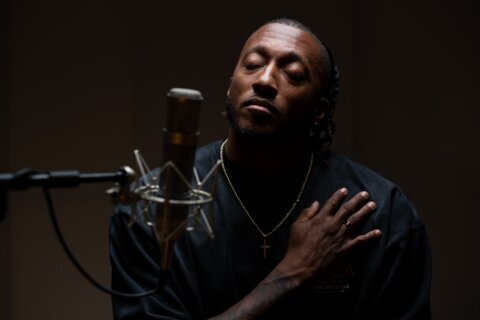Attention deficit hyperactivity disorder is a common disorder diagnosed among children and adolescents. ADHD often involves difficulties with maintaining attention, and being hyperactive and impulsive. To be diagnosed with this disorder, symptoms must be present before age 12 and cause significant difficulties in the child’s daily life.
Symptoms of ADHD vary for each child. The Diagnostic and Statistical Manual of Mental Disorders, Fifth Edition (DSM-5) indicates that to be diagnosed with ADHD, six or more symptoms must occur over a six-month period. Furthermore, the behaviors must impair the child’s functioning in two or more settings, such as home, school or in public. Common behaviors may include:
— Failing to complete a task like homework.
— Difficulty maintaining attention during play.
— Problems following multiple-step instructions.
— Losing objects necessary to complete tasks or activities.
— Often fidgeting with hands or having difficulties sitting still.
— Running or climbing in inappropriate situations, such as in the classroom.
— Blurting out answers or comments.
It’s important to keep in mind that each child will experience ADHD differently. If you have concerns that your child may have ADHD, you should consult a licensed mental health professional or pediatrician to determine if your child meets the criteria for a diagnosis.
[SEE: OCD in Children.]
Treatment of ADHD
ADHD can cause problems for both the child and the child’s family. Fortunately, treatment can help reduce the symptoms and improve in the child’s life. Typically treatment for ADHD involves psychological interventions like behavior therapy, medication or both.
Behavior therapy is a common psychological treatment that involves teaching individuals how to manage symptoms and change behavior. For parents, behavior therapy often involves learning how to modify your child’s behavior through actively practicing skills in therapy sessions, such as how to praise your child when they engage in a desired behavior. You should consult with a licensed provider to identity the most appropriate behavior therapy for your family.
While medications are commonly prescribed to treat ADHD, there are some concerns regarding side effects and overuse of medication, and potential for biological difficulties such as stunting the child’s growth and increased risk of substance use in adulthood. The issue is complex, but research is clear that children diagnosed with ADHD are at a higher risk for substance use than those who don’t have the disorder. Recent research provides one possible solution.
A study published last year in the Journal of Clinical Child & Adolescent Psychology found that the use of behavioral interventions as a primary treatment may reduce or even eliminate the need for medication to treat ADHD in children. This could help to prevent later substance abuse and addiction in adulthood.
The study examined the impact of implementing behavior therapy on medication use and ADHD symptoms over time. The results indicated that children who received behavior therapy were less likely to require any type of medication at school or home.
[READ: Parents: Get Inside Your Adolescent’s Brain to Prevent Addiction]
Parenting Strategies for Managing ADHD
Below are some tips on managing behavior issues associated with ADHD. Given each child is different, it may help to speak with a mental health professional about the most appropriate behavioral intervention for your child.
Establish a routine. Flexibility is important, since life doesn’t always go as planned. However, most children benefit from structure in their lives. Having a routine is particularly useful to help children with ADHD learn expectations. This may involve identifying a morning schedule or nighttime routine before bed.
Provide simple instructions. Kids with ADHD often have difficulties following directions or completing tasks that involve multiple steps. You should consider providing simple, direct instructions. Instead of saying, “Go clean your room”, say, “Put your clothes away in your dresser.”
Avoid fixating on negative behavior. When your child doesn’t follow directions or misbehaves, try not to overemphasize the undesired behavior. Children learn better when told what they should do. To help your child, redirect them, so that they understand what’s expected of them. For example, instead of saying, “Stop jumping on the sofa,” say, “Sit on the sofa.”
Create a reward system. As an adult, you should be able to understand how we’re all motivated by receiving some positive attention or rewards. With children, you can use a variety of reward systems or behavior charts to reinforce the behaviors you want to see. The goal is to find out what motivates your child and provide encouragement and rewards to change your child’s behavior.
[See: 10 Things Pediatricians Advise That Parents Ignore — and Really Shouldn’t.]
Of course, treatment of ADHD can be complicated. A combination of therapy and medication is often recommended to manage the disorder. However, as recent research suggests, early intervention with behavior therapy may limit the need for medication.
More from U.S. News
6 People You Need to Stop Following on Instagram to Improve Your Mental Health
4 Subtle Signs of Depression in Men
4 Opioid Drugs Parents Should Have on Their Radar
For Kids With ADHD, Therapy May Reduce the Need for Medication originally appeared on usnews.com







